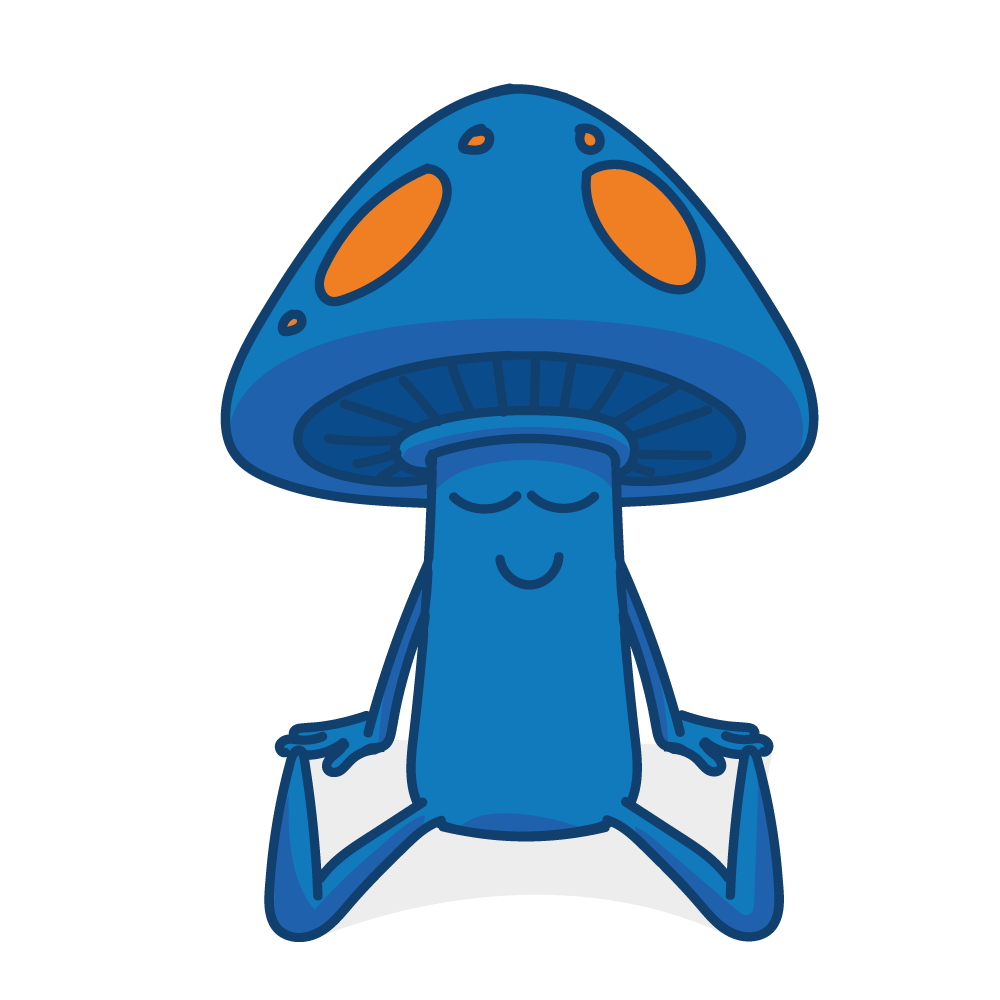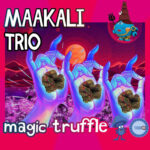Caffeine vs. Psilocybin
Yep, most people don’t realize that their salted-caramel frappuccino has more in common with a magic mushroom than they ever imagined. Maybe in an alternate world we’d have a Shroombucks instead of a Starbucks! But, as it stands today, one of these psychoactive substances has addictive qualities, and can be toxic at high doses. However, it is accepted by societies worldwide. And the other is psilocybin, from magic mushrooms. And while caffeine is ubiquitous — non-addictive, non-toxic, psilocybin is often still stigmatized.

This isn’t a take-down of caffeine of course — we love a cappuccino on a sunny morning — but rather a comparison of how different substances have been treated through history. How can one, that can have significant negative effects, be embedded in so many cultures, while another, with so many benefits, has been locked out of wider society?
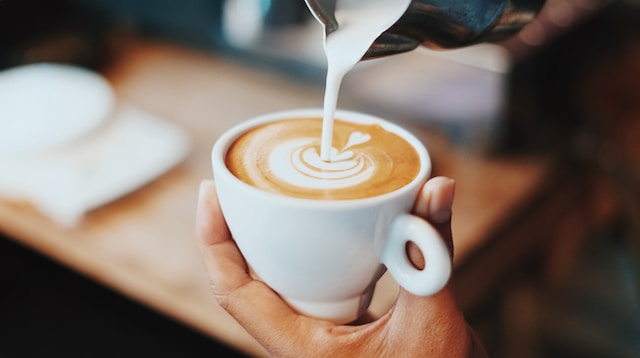
Additionally, we’ll address a question many people ask: Can you combine psilocybin and caffeine? This query has become pertinent as a growing number of people are adding psilocybin microdosing to their morning routine. And for most people, mornings mean coffee.
What is Caffeine?
Caffeine is the world’s most widely consumed psychostimulant. The crutch of every worker on break, an excuse to have a catch-up with friends, a minute to yourself — swathes of our social structures are built around coffee or tea. In many places you are more likely to be offered a cup o’ joe than a glass of water!
The History of Coffee
The origins of our lattes, as we know them, come from Ethiopia where wild coffee plants grow. These were taken to southern Arabia and cultivated in the 15th century. One of the many legends that focus on the ‘discovery’ of coffee is that of Kaldi. Kaldi was an Arab goatherd, from around 850 CE. One day, he noticed that his flock was behaving bizarrely after feeding on the berries of nearby bush. He too sampled the berries, and after experiencing waves of energy and exhilaration he shared his discovery with the world. By the 18th century coffee was a global fixture.
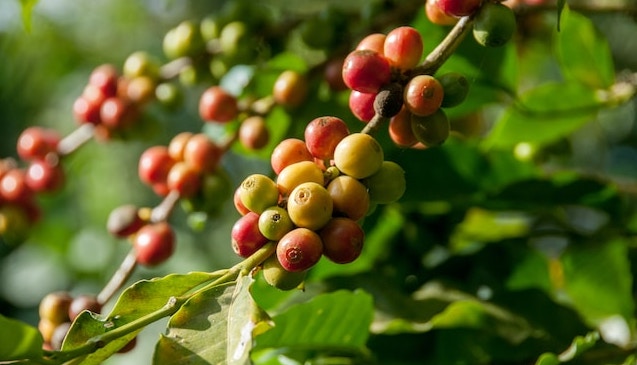
The allure of coffee crosses sensory borders. The rich smell, intense taste, and very physical effects are what we knowingly experience. But, as with all caffeine-rich substances there is a lot going on under the surface too.
How Caffeine Affects Our Bodies
Caffeine blocks our bodies adenosine receptors which increases our levels of dopamine, noradrenaline and glutamate. It has an effect on our central nervous system as well as our cardiovascular system. Studies have shown it can reduce the effects of dementia, such as Alzheimer’s, in later life. It is also considered beneficial for cancers such as pancreatic, bladder or colon.
But, while caffeine does have benefits, and for many years was considered medicinal, it also has qualities that make it less than ideal.
The Dangers of Caffeine
Caffeine can raise our heart rate, exacerbate anxiety, cause insomnia, and in high doses can cause irregular heartbeat. Additionally there is an overdose level for caffeine — which means yes, you can die from it. On top of all that, it’s addictive. Although, many people don’t realize this until they try and kick their flat white habit.
Anyone who has ever forgotten their morning coffee knows the creep of the caffeine withdrawal headache. It affects our dopamine levels, nervous system and cardiovascular system, which is why it is so tricky to detox from. Psychedelic guru and author Michael Pollan wrote an entire audiobook based on his adventures researching, quitting, detoxing from, and eventually beginning his relationship with caffeine again — such is the journey. He wrote in the Guardian;
“I wondered: was there any way to preserve the power of this drug? Could I devise a new relationship with caffeine? Maybe treat it more like a psychedelic – say, something to be taken only on occasion, and with a greater degree of ceremony and intention.”
What is Psilocybin?
Psilocybin is the psychoactive ingredient in magic mushrooms and truffles. In high doses it can cause psychedelic trips with visual, aural and sensorial hallucinations. It has been used as a ceremonial or healing tool by indigenous communities for centuries. However, it was introduced to the Western imagination in the 1950s. As well as being a popular recreational drug, recent study has found that psilocybin can be effective in treating many mental health conditions. These include depression and treatment resistant depression, eating disorders such as anorexia, addiction issues, post traumatic stress disorder (PTSD) and Obsessive Compulsive Disorder. It can also be applied to help manage anxiety and ADHD, as well as increasing general feeling of well being and day-to-day happiness.
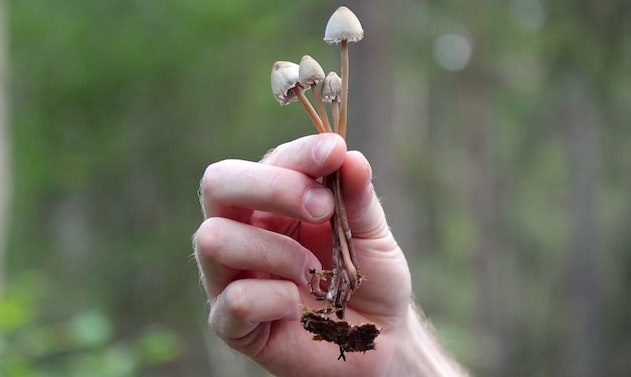
While still illegal in many countries, the overwhelming amount of promising findings in the favor of psilocybin is causing a wave of changes in policy, and a rethinking of attitudes. Psilocybin can be taken in the form of fresh magic mushrooms, dried magic mushrooms, fresh magic truffles, dried magic truffles, or a tincture or tea made from any of the above.
Two Perception Altering Substances
So we have two substances who hold very different places within society. One is currently deeply embedded, the other on the outskirts. But they do have overlaps. They both alter our senses of perception, affect our mood and can improve cognition. However, caffeine has been very thoroughly researched. The study of psilocybin is still relatively new. So when it comes to combining them not much is known concretely… yet.
Combining Psilocybin and Caffeine
In this instance we will be talking about psilocybin in terms of microdosing. This is the practice of taking a sub-perceptual dose of psilocybin — not to feel any psychedelic effects but to improve mood, focus and creativity. Microdosing is probably the use of psilocybin most comparable to that morning cup of coffee. (Full Microdose Guide here)
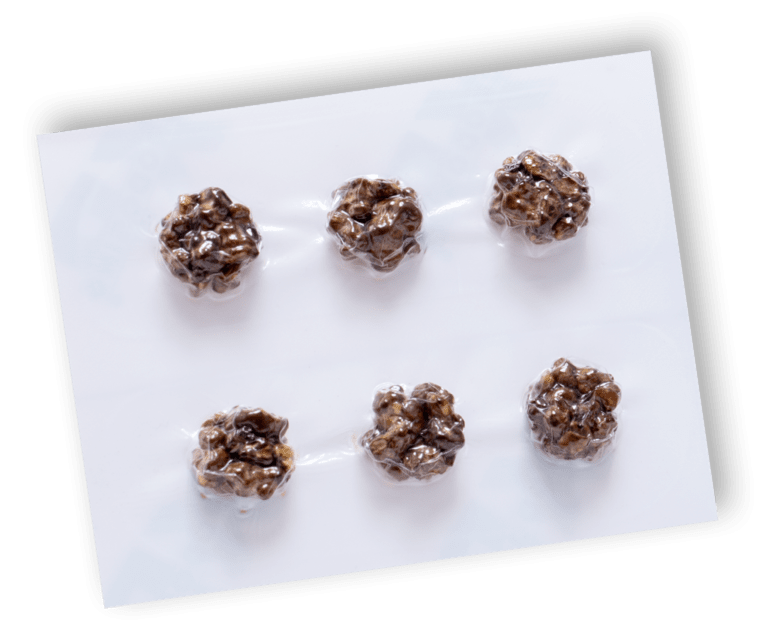
So what happens when we combine our microdose routine with our morning coffee?
Well, like so many of these holistic, bodily questions — it’s pretty subjective. Much that is known about microdosing psilocybin is based on self-reported experience. Our bodies exist as an individual ecosystem and only we know, or can discover, what works for us, especially psychedelic-wise. And in terms of caffeine, our relationship with that alters too. Many people as they age find that their relationship to caffeine changes, as it can affect us differently at different stages of our lives.
But here’s what we can say: Psilocybin is thought by many to make them more alert. And caffeine is a known stimulant. If you are prone to jitters from either one it is best to take this into account before you combine the two, as too much stimulation can cause anxiety for some people. If this is the case for you, maybe skip the caffeine on your microdosing day.
However, for some people this kind of stimulation could be key to helping them prepare for the day and get a head start at work.
Start Small, Listen to Your Body
Many people in the microdosing community tend not to combine the two, as many say the effects of psilocybin are more clear to them without it. The key to getting to know what works for you is to try various methods and see which you prefer. Always start small though! The first time you combine the two, perhaps start with a cup of tea — rather than a double espresso!
